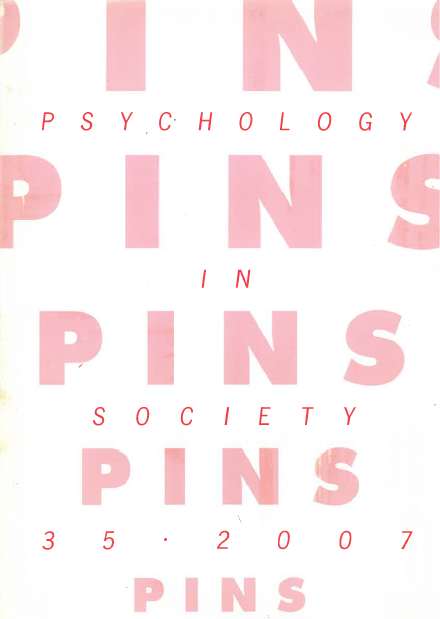MEN’S BODY RELATED PRACTICES AND MEANINGS OF MASCULINITY
DOI:
https://doi.org/10.17159//2309-8708/2007/n35a5Abstract
The present investigation is about men and their bodies. Against the increasing visibility of the (idealised and eroticized) male body in Western popular culture as well as claims that men are becoming the new victims of “the beauty myth”, this study aims to examine men’s appearance related practices in relation to meanings of masculinity. Semi-structured, in depth interviews were conducted with fifteen men between the ages of 18 and 38. Using that method of discursive analysis developed specifically for the investigation of masculinities by Wetherell & Edley (1999), various subject positions taken up by the men in talking about their appearance related practices were identified. The men positioned themselves as unconcerned with appearance, untraditionally masculine, heterosexual, well-balanced and disembodied. A concern for appearance appears inconsistent with ideals of hegemonic masculinity (as valued by these men), and it is suggested that men are unlikely to constitute a large proportion of those individuals who might be described as “victims” of “the beauty myth”.
Downloads
Downloads
Published
How to Cite
Issue
Section
License
This journal is an open access journal, and the authors' and journal should be properly acknowledged, when works are cited.
Authors may use the publishers version for teaching purposes, in books, theses, dissertations, conferences and conference papers.
A copy of the authors’ publishers version may also be hosted on the following websites:
- Non-commercial personal homepage or blog.
- Institutional webpage.
- Authors Institutional Repository.
The following notice should accompany such a posting on the website: “This is an electronic version of an article published in PINS, Volume XXX, number XXX, pages XXX–XXX”, DOI. Authors should also supply a hyperlink to the original paper or indicate where the original paper (http://www.journals.ac.za/index.php/pins) may be found.
Authors publishers version, affiliated with the Stellenbosch University will be automatically deposited in the University’s’ Institutional Repository SUNScholar.
Articles as a whole, may not be re-published with another journal.
The copyright of the article(s) lies with the author(s).
The copyright of the journal lies with PINS-psychology in Society.
The following license applies:
Attribution CC BY-NC-ND 4.0 - https://creativecommons.org/licenses/by-nc-nd/4.0/

